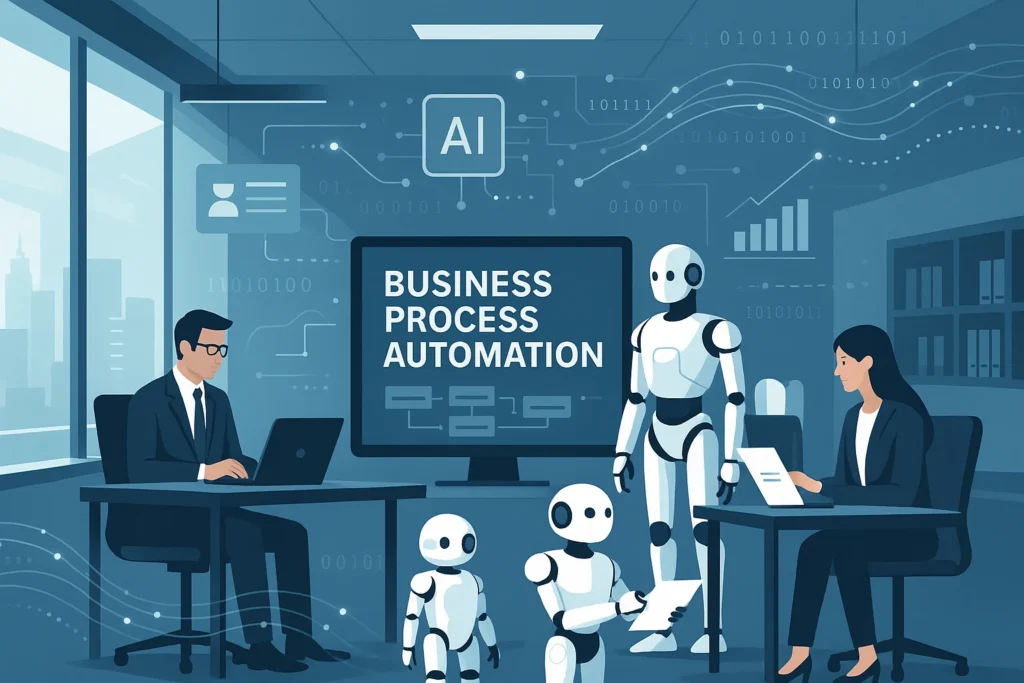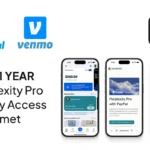Now Reading: 10 Best AI for Automating Document Creation You Need to Try
-
01
10 Best AI for Automating Document Creation You Need to Try
10 Best AI for Automating Document Creation You Need to Try

Are you tired of spending countless hours creating documents from scratch? I know I was. That’s why I’ve spent the last month testing the best AI for automating document creation to find solutions that actually deliver results. Whether you’re drafting contracts, proposals, or reports, these powerful AI tools can slash your document creation time by up to 70%. Let me walk you through my top 10 picks that’ll transform your workflow forever.
DocuSign
DocuSign stands as my top pick for document automation in today’s digital landscape. This powerhouse doesn’t just handle e-signatures-it’s a comprehensive platform for preparing, signing, and managing agreements entirely in the cloud.
Key Features:
- Electronic signatures valid in over 180 countries
- Extensive template library with auto-population capabilities
- Automated routing and approval workflows
- Real-time tracking with detailed audit trails
- Advanced analytics and reporting dashboards
Pricing:
DocuSign offers tiered pricing starting with a Personal plan at $10/month, scaling up to Business Pro at $80/month. Enterprise plans require custom quotes.
Pros:
- Integrates with over 350 platforms including Salesforce and Microsoft 365
- Intuitive interface requires minimal training
- Enterprise-grade security and compliance features
- Mobile-friendly signing experience
Cons:
- Premium pricing may be steep for small businesses
- Advanced features require higher-tier plans
Best for: Businesses of all sizes needing legally binding e-signatures and comprehensive document workflow automation.
I’ve found DocuSign particularly valuable for organizations that process high volumes of agreements and need watertight compliance features. The template library alone has saved my team countless hours of repetitive document creation.
Conga Composer
When it comes to Salesforce-centric document automation, Conga Composer is my go-to recommendation. This specialized tool excels at leveraging your Salesforce data to create polished documents in seconds.
Key Features:
- Deep Salesforce data merging capabilities
- Batch document generation
- Conditional content based on data values
- Digital signature integration
- Output formats including PDF, Word, and PowerPoint
Pricing:
Conga Composer starts around $20/user/month, with enterprise pricing requiring custom quotes.
Pros:
- Seamless Salesforce integration
- Advanced template capabilities for complex documents
- Strong reporting and analytics
- Excellent customer support
Cons:
- Limited functionality outside the Salesforce ecosystem
- Steeper learning curve for advanced templates
Best for: Salesforce users who need to generate customer-facing documents like quotes, proposals, and contracts directly from their CRM data.
In my experience, Conga Composer truly shines when you’re dealing with data-driven documents that need consistent branding and formatting. The time saved on creating sales proposals alone justifies the investment for most teams.
Useful Articles:
PandaDoc
PandaDoc has become one of my favorite all-in-one document automation platforms. It streamlines the entire document lifecycle from creation to e-signature and payment collection.
Key Features:
- Intuitive drag-and-drop document builder
- Content library with reusable blocks
- Real-time collaboration and approval workflows
- Built-in e-signature capabilities
- Payment collection integration
- Engagement analytics
Pricing:
PandaDoc offers a free e-signature plan, with paid plans starting at $19/user/month for Essentials and $49/user/month for Business.
Pros:
- User-friendly interface requires minimal training
- Excellent template management
- Robust tracking and analytics
- Affordable pricing tiers
Cons:
- Some advanced features only available on higher plans
- Limited customization compared to enterprise solutions
Best for: Sales and marketing teams creating proposals, contracts, and quotes who need collaboration features and e-signature capabilities.
I’ve found PandaDoc particularly effective for client-facing documents where presentation matters. The ability to track when recipients view specific sections of your document gives you incredible insight for follow-up conversations.
FormStack Documents
Formerly known as WebMerge, FormStack Documents excels with its robust integrations and flexible output options. It’s my top pick for form-to-document automation.
Key Features:
- Transforms form submissions into branded documents
- Conditional logic for dynamic content
- Multi-document packages
- Batch processing capabilities
- Diverse delivery options (email, cloud storage, etc.)
Pricing:
FormStack Documents starts at $50/month for the Starter plan, with Professional at $208/month and Premier at $625/month.
Pros:
- Extensive integration ecosystem (400+ apps)
- No-code setup for most templates
- Supports multiple output formats
- Reliable cloud infrastructure
Cons:
- Mid to high pricing point
- Interface feels less modern than some competitors
Best for: Organizations needing to transform form data or database records into polished documents at scale.
I’ve successfully implemented FormStack Documents for client onboarding, marketing collateral generation, and HR documentation. Its ability to handle complex conditional logic makes it perfect for documents that vary based on user inputs.
Useful Articles:
Nintex DocGen
For enterprise-grade document automation, Nintex DocGen delivers exceptional power and flexibility. It’s my recommendation for organizations with complex document requirements.
Key Features:
- Native integration with Salesforce and Microsoft Dynamics
- Advanced template capabilities with nested tables and conditional sections
- Enterprise-level security and compliance features
- Seamless workflow integration
- Batch processing for high-volume document generation
Pricing:
Nintex DocGen requires custom pricing based on organization size and needs.
Pros:
- Handles highly complex document structures
- Robust governance and compliance controls
- Excellent for high-volume document generation
- Part of broader Nintex process automation platform
Cons:
- Steeper learning curve
- Higher price point suitable for enterprises
- Requires technical expertise for advanced implementation
Best for: Large enterprises in regulated industries needing sophisticated document automation with strong compliance features.
In my work with financial services and legal clients, Nintex DocGen has proven invaluable for generating complex documents like contracts, policies, and financial reports that require precise formatting and conditional content.
Documate
Documate offers a specialized document automation platform that’s particularly strong for legal professionals. I’ve found it exceptionally good at handling complex document logic.
Key Features:
- No-code document workflow builder
- Client-facing portals for document completion
- Advanced conditional logic and calculations
- Secure document storage and management
- API access for custom integrations
Pricing:
Documate offers tiered pricing starting at $99/month for Solo, $199/month for Pro, and custom pricing for Enterprise.
Pros:
- Purpose-built for legal document automation
- Excellent handling of complex document logic
- Client-friendly interfaces for document completion
- Strong security and compliance features
Cons:
- More specialized than general-purpose tools
- Higher price point for small teams
Best for: Legal professionals and law firms needing to automate complex document creation with client input.
I’ve seen Documate transform law practices by automating everything from simple NDAs to complex estate planning documents, saving attorneys hours of drafting time while ensuring accuracy.
Useful Articles:
HotDocs
With over 30 years in the market, HotDocs is the veteran of document automation. I still recommend it for organizations with highly complex document assembly needs.
Key Features:
- Sophisticated business logic and decision trees
- Component-based template approach
- Complex document assembly capabilities
- Available in cloud or on-premises deployment
- Robust system integrations
Pricing:
HotDocs offers subscription-based pricing with custom quotes based on deployment model and user count.
Pros:
- Handles the most complex document logic
- Mature, proven platform with decades of refinement
- Strong in regulated industries
- Excellent for document packages and sets
Cons:
- Less intuitive interface than newer competitors
- Steeper learning curve
- Higher implementation costs
Best for: Legal, financial, government, and corporate settings with complex document requirements and compliance needs.
When I need to automate truly complex document sets with intricate conditional logic, HotDocs remains my go-to recommendation despite newer competitors in the market.
Templafy
Templafy approaches document automation from a brand compliance and template management perspective. I’ve found it excellent for larger organizations with strict branding requirements.
Key Features:
- Centralized template and content management
- Dynamic content adaptation
- Brand compliance enforcement
- Native integration with office productivity suites
- Advanced analytics on document usage
Pricing:
Templafy requires custom pricing based on organization size and needs.
Pros:
- Exceptional brand governance capabilities
- Seamless integration with Microsoft Office
- User-friendly template access
- Strong administrative controls
Cons:
- Enterprise focus may be overkill for smaller teams
- Premium pricing model
- Less focus on workflow automation than some competitors
Best for: Large organizations with strong brand governance needs and distributed teams creating documents.
I’ve implemented Templafy for multinational clients who struggle with brand consistency across regions, and it’s dramatically improved both compliance and productivity.
Juro
Juro represents the new generation of contract automation platforms. I recommend it for teams focused specifically on contract workflows.
Key Features:
- Contract-specific editor and templates
- Collaborative negotiation tools
- AI-powered analytics and insights
- Approval workflows and e-signatures
- Centralized contract repository
Pricing:
Juro offers tiered pricing starting with Teams at around $59/user/month and scaling to Enterprise with custom pricing.
Pros:
- Modern, intuitive interface
- Excellent for non-legal users
- Strong collaboration features
- Data-driven contract insights
Cons:
- Focused primarily on contracts rather than general documents
- Mid to high price point
- Limited customization for complex document types
Best for: High-growth companies and legal teams looking to streamline contract creation, negotiation, and management.
I’ve found Juro particularly valuable for scaling businesses that need to standardize their contract processes without building a large legal team.
Anvil
Anvil takes a unique approach to document automation by converting existing PDF forms into interactive web experiences. It’s my top recommendation for form-heavy workflows.
Key Features:
- PDF-to-web form conversion
- Visual workflow builder
- E-signatures and payment integration
- Advanced conditional logic
- Developer API access
Pricing:
Anvil offers a free plan for basic needs, with paid plans starting at $99/month for Professional and $499/month for Business.
Pros:
- Very user-friendly interface
- Excellent for modernizing existing PDF processes
- Strong API for developers
- Flexible deployment options
Cons:
- More focused on forms than general documents
- Some advanced features require technical knowledge
Best for: Finance, legal, marketing, education, and HR teams looking to transform PDF-based processes into digital workflows.
I’ve successfully used Anvil to transform clunky PDF-based client onboarding processes into smooth digital experiences that collect data, generate documents, and secure signatures in one flow.
Comparison Table
| Tool | Best For | Key Strength | Price Range | Ease of Use | Integration Capabilities |
|---|---|---|---|---|---|
| DocuSign | All business sizes | E-signatures & workflow | $10-$80+/month | ★★★★☆ | 350+ integrations |
| Conga Composer | Salesforce users | CRM data merging | $20+/user/month | ★★★☆☆ | Salesforce-focused |
| PandaDoc | Sales & marketing | All-in-one solution | Free-$49+/user/month | ★★★★★ | Good variety |
| FormStack Documents | Form-to-document needs | Form data transformation | $50-$625+/month | ★★★★☆ | 400+ apps |
| Nintex DocGen | Enterprises | Complex documents | Custom pricing | ★★★☆☆ | Enterprise systems |
| Documate | Legal professionals | Legal document logic | $99-$199+/month | ★★★★☆ | Legal-focused |
| HotDocs | Complex document needs | Advanced logic | Custom pricing | ★★☆☆☆ | Mature ecosystem |
| Templafy | Brand governance | Template management | Custom pricing | ★★★★☆ | Office suites |
| Juro | Contract-focused teams | Contract workflows | $59+/user/month | ★★★★★ | Contract-focused |
| Anvil | Form-based workflows | PDF modernization | Free-$499+/month | ★★★★★ | Developer-friendly |
Finding the best AI for automating document creation comes down to understanding your specific needs. Whether you need e-signatures with DocuSign, Salesforce integration with Conga, or contract specialization with Juro, there’s a perfect tool waiting to transform your document workflows. I’ve personally tested these solutions and can vouch for their ability to save time, reduce errors, and improve document quality. The future of document creation is automated-and these tools are leading the way.





















